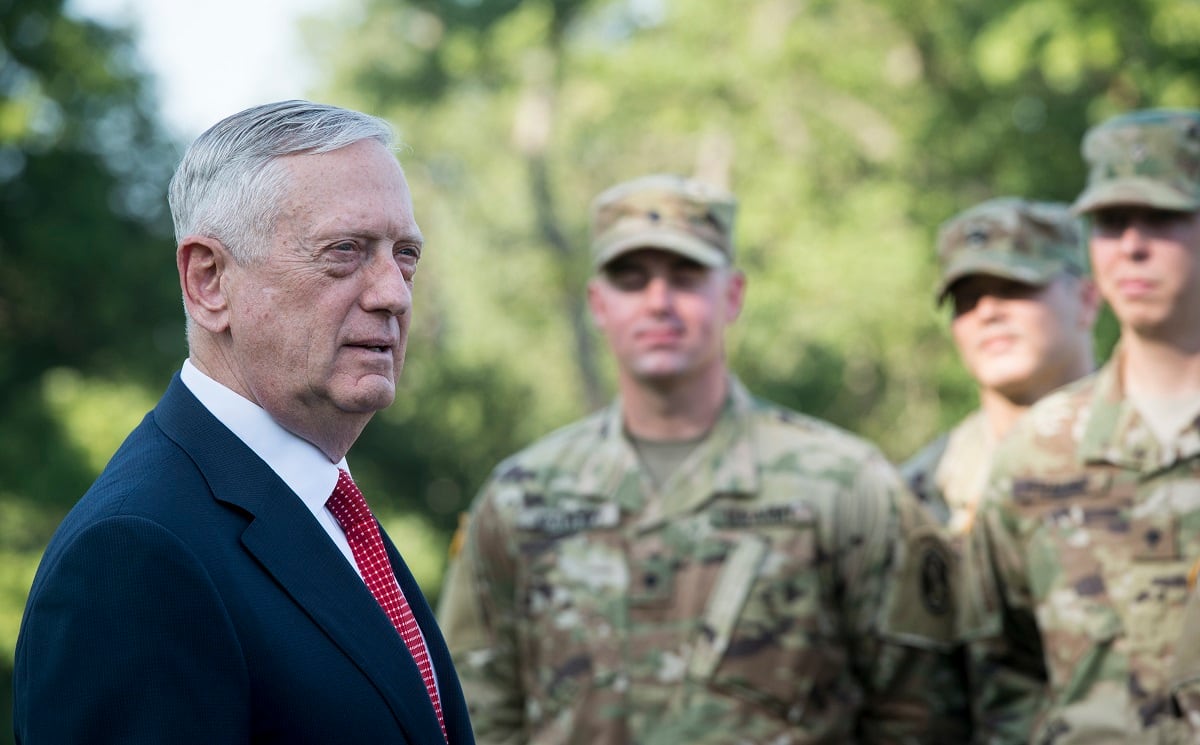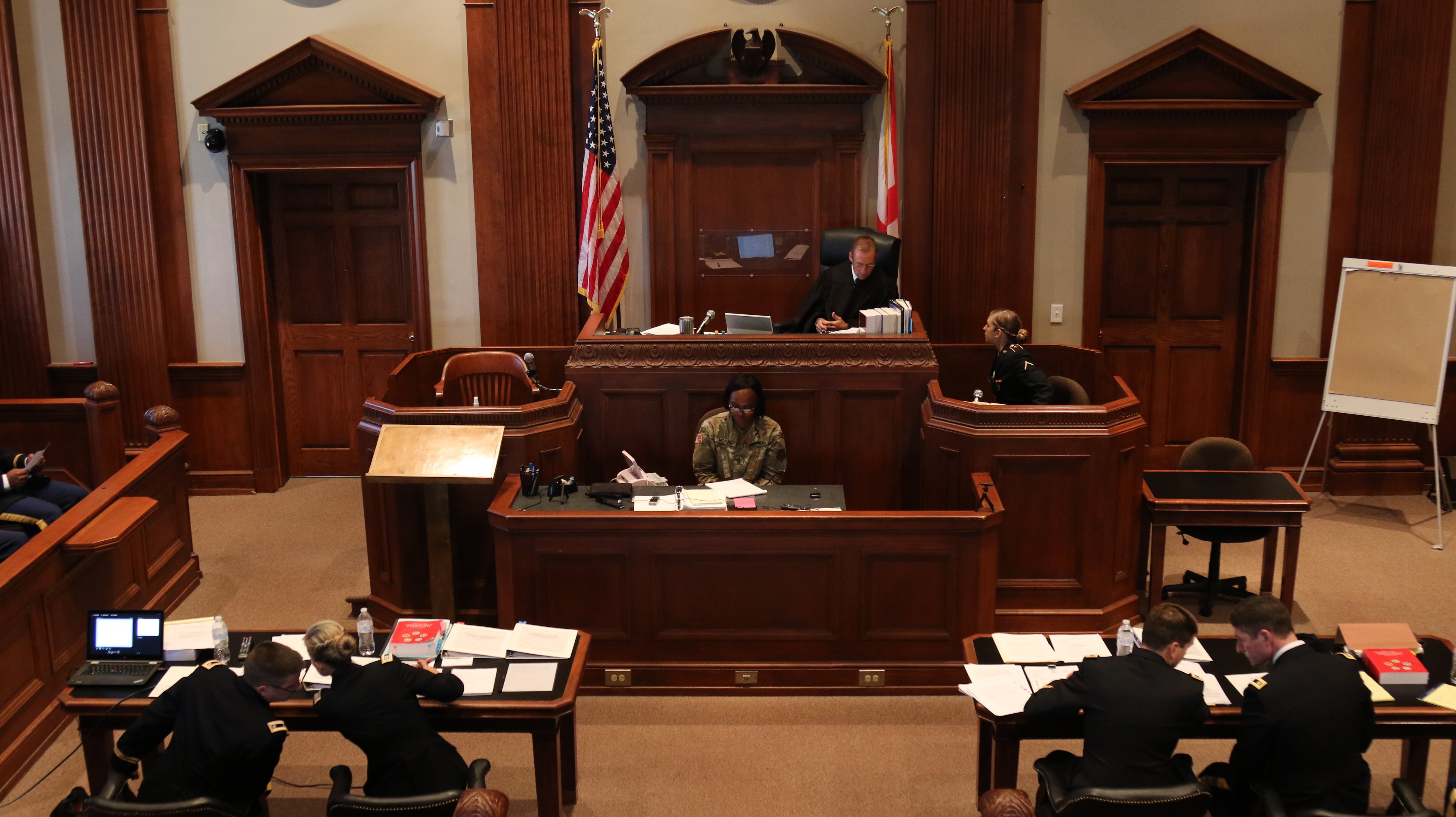The Supreme Court decided last week not to review the case of a retired Marine who was court-martialed and convicted of sexual assault in 2015, upholding the Pentagon’s authority to prosecute retirees for crimes they commit even after leaving the service.
The decision leaves the possibility open for retirees to face punishment, such as sailors involved in the Navy’s “Fat Leonard” scandal and retired Army Gen. David Petraeus — who pleaded guilty to providing classified information to his biographer.
On Feb. 19, the Supreme Court chose not to hear the case of retired Marine Staff Sgt. Steven M. Larrabee, who left the Corps after 20 years of service but continued to reside in Iwakuni, Japan, his final duty station, where he managed two local bars.
On Nov. 15, 2015, after a night of drinking, Larrabee sexually assaulted a bartender at one of the bars he managed and used his cell phone to record the incident.
RELATED

Larrabee “was subsequently convicted by a court-martial, pursuant to his pleas, on one count of sexual assault and one count of indecent recording in violation of Articles 120 and 120c of the Uniform Code of Military Justice,” according to court records.
The military judge sentenced Larrabee to eight years’ confinement, a reprimand, and a dishonorable discharge. As part of a pre-trial agreement, however, his prison term was reduced to 10 months.
In September 2018, Larrabee filed a petition for his conviction to be overturned on appeal based on the argument that he should have been tried as a civilian. However, the Supreme Court has denied that appeal, upholding the past standard that retirees are still subject to the UCMJ.
The argument against holding retirees to the UCMJ
Steve Vladeck, a law professor at the University of Texas, represented Larrabee in his appeal petition.
Vladeck wrote in a Feb. 12 Lawfare article that “until recently, lower courts had routinely upheld the military’s power to try those retired service members who continue to receive pay from the government, reasoning that such a salary renders the retiree a continuing member of the ‘land and naval forces,’" and one who could be recalled to active duty in time of war.
Larrabee’s petition argued that considering a retired service member a continuing member of the military is “anachronistic.”
“He receives pay in the form of his military pension, but he holds no active rank; he has no commanding officer or subordinates; he lacks the authority to issue binding orders; he has no obligation to follow orders; he performs no duties; and he participates in no regular military activities,” Larrabee’s petition reads.

Even in a national emergency, only a small percentage of retired service members could be realistically recalled to active duty, Vladeck said. Since the Vietnam War, the reserve component has been the Defense Department’s reservoir to assist active-duty troops.
“And with respect to reservists, unlike retired service members, Congress has authorized military trials only for offenses committed while on active-duty or inactive-duty training,” Vladeck said.
The argument for holding retirees to the UCMJ
Vladeck’s argument was opposed by retired Air Force Maj. Gen. Charles J. Dunlap Jr., a member of the Duke Law faculty, who said that reliance on retirees as a strategic reserve is not anachronistic at all, but in fact, a growing reality.
“Forecasting the future of warfare is highly problematic,” Dunlap wrote in a Feb. 16 blog post. “In my view, it’s quite possible to envision a future where America must be ready to use all available manpower.”
“Meeting a crisis with China, Russia, Iran, or North Korea ... with [an armed force] that has shrunk to nearly pre-World War II levels might well create a need for troops that cannot be quickly or easily filled by volunteers from civilian life,” Dunlap added.
In 2017, President Donald Trump signed an executive order to expand the peacetime authority of the secretary of defense to recall retirees in part to deal with the Air Force’s pilot shortage.
Dunlap also said that retirees are not forced to collect retirement pay, but instead choose to keep a relationship with the military. Larrabee, in particular, was still a member of Fleet Marine Corps Reserve.
“The latter provision is especially important because there is no dispute that Larrabee was a member of it,” Dunlap said. “Moreover, as explained by the Solicitor General, Larrabee could have requested discharge in lieu of transfer to Fleet Marine Corps Reserve if he had wanted to do so."
"If he had, he would have avoided potential court-martial jurisdiction, but doing so would have also ended his entitlement to retired pay.”
Kyle Rempfer was an editor and reporter who has covered combat operations, criminal cases, foreign military assistance and training accidents. Before entering journalism, Kyle served in U.S. Air Force Special Tactics and deployed in 2014 to Paktika Province, Afghanistan, and Baghdad, Iraq.




